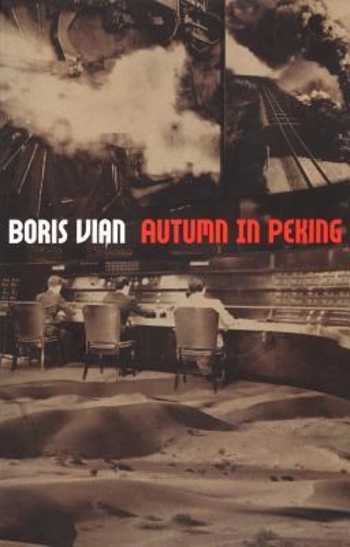Autumn in Peking

Autumn in Peking
Год выхода 1947
Boris Vian was a jack of all trades - although unfortunately his name was Boris and "Boris of all trades" never took off as a turn of phrase. But nevertheless Vian was a great songwriter, playwright, singer, jazz critic and, of course novelist so it should have been Boris instead of Jack. Vian's 1947 novel Autumn in Peking (L'Automne a Pekin) is perhaps Vian's most slapstick work, with an added amount of despair in its exotic recipe for a violent cocktail drink. The story takes place in the imaginary desert called Exopotamie where all the leading characters take part in the building of a train station with tracks that go nowhere. Houses and buildings are destroyed to build this unnecessary structure - and in Vian's world waste not, make not. In Alistair Rolls' pioneering study of Vian's novels, "The Flight of the Angels," he expresses that Exopotamie is a thinly disguised version of Paris, where after the war the city started changing its previous centuries of architecture to something more modern. Yes, something dull to take the place of what was exciting and mysterious. Vian, in a mixture of great humor and unequal amount of disgust, introduces various 'eccentric' characters in this 'desert' adventure, such as Anne and Angel who are best friends; and Rochelle who is in love and sleeps with Anne, while Angel is madly in love with her. Besides the trio there is also Doctor Mangemanche; the archeologist Athanagore Porphyroginite, his aide, Cuivre; and Pipo - all of them in a locality similar to Lewis Carroll's Alice in Wonderland, where there is a tinge of darkness and anything is possible, except for happiness.
